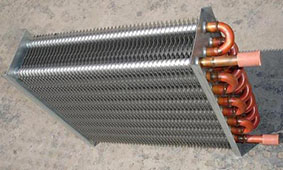
UK coil market 'toughest' in years


Service centres are sufficiently stocked and demand has dipped, so they are willing to withhold purchases for as long as possible — most centres seem to have ample stock for the fourth quarter.
The seller was very concerned by the automotive industry's outlook after the steep drop in new car registrations in September. Jaguar Land Rover has moved to a three-day week at its Castle Bromwich site as it grapples with reduced diesel sales and the likely fallout from the UK's exit from the EU, while Toyota said it might need to temporarily close its Derbyshire plant. Most of the Derbyshire plant's sales go to EU destinations.
Carmaker Nissan also spoke out on Brexit today, saying a ‘no deal' scenario would threaten timely component deliveries from the EU. Timely delivery of certain parts is vital for smooth production, although some parts can be purchased from further afield.
Auto-galvanised service centres are searching for other markets. Automotive companies account for over 60pc of European hot-dip galvanised consumption.
On the hot-rolled coil (HRC) side, Turkish offers were back in the market at £530/t ddp West Midlands. Material from an integrated producer was offered by two trading firms at as low as £520/t ddp, but any price advantage disappeared because of exchange rate fluctuations. One source said $630/t cfr (£483.79/t) was a workable price into the UK, while Turkish expectations for galvanised sales slipped to around $760/t cfr for DX51 Z140.
This was competitive against a small trader stock sale to a service centre at £675/t ddp for 1,250mm wide 1.5mm thick Z275 material.
Trading firms seemed adequately stocked across the coil suite. One seller said it could not sell cold-rolled coil at £575/t ddp, but had concluded some sales for a particular thicknesses that must have been in shorter supply.
HRC from one domestic supplier was heard to be available at £540/t ddp, while another mill was behind on deliveries. But one large distributor said it would be able to secure a price in the low-£500s/t ddp for a sizeable order. Another buyer said fresh orders could be delivered by the end of the year.
Potential Brexit outcomes also concerned service centres — none wanted to book imported supply only for a deal to be announced that would see the pound appreciate and prices weaken. One trading firm said this could play into a tighter market for European sellers going forward, especially as with the approach of the end of the preliminary tariff rate quota period in February.
Market sentiment has reversed sharply from summer, when most buy and sell-side sources anticipated price increases into the fourth quarter. Now, most seem more concerned about buying before a further slip in prices devalues their stocks, heightening the wait-and-see mood.


Gold price edges up as market awaits Fed minutes, Powell speech

Glencore trader who led ill-fated battery recycling push to exit

Emirates Global Aluminium unit to exit Guinea after mine seized

UBS lifts 2026 gold forecasts on US macro risks

Iron ore price dips on China blast furnace cuts, US trade restrictions

Roshel, Swebor partner to produce ballistic-grade steel in Canada

EverMetal launches US-based critical metals recycling platform

US hikes steel, aluminum tariffs on imported wind turbines, cranes, railcars

Afghanistan says China seeks its participation in Belt and Road Initiative

First Quantum drops plan to sell stakes in Zambia copper mines

Ivanhoe advances Kamoa dewatering plan, plans forecasts

Texas factory gives Chinese copper firm an edge in tariff war

Pan American locks in $2.1B takeover of MAG Silver

Iron ore prices hit one-week high after fatal incident halts Rio Tinto’s Simandou project

US adds copper, potash, silicon in critical minerals list shake-up

Barrick’s Reko Diq in line for $410M ADB backing

Gold price gains 1% as Powell gives dovish signal

Electra converts debt, launches $30M raise to jumpstart stalled cobalt refinery

Gold boom drives rising costs for Aussie producers

First Quantum drops plan to sell stakes in Zambia copper mines

Ivanhoe advances Kamoa dewatering plan, plans forecasts

Texas factory gives Chinese copper firm an edge in tariff war

Pan American locks in $2.1B takeover of MAG Silver

Iron ore prices hit one-week high after fatal incident halts Rio Tinto’s Simandou project

US adds copper, potash, silicon in critical minerals list shake-up

Barrick’s Reko Diq in line for $410M ADB backing

Gold price gains 1% as Powell gives dovish signal

Electra converts debt, launches $30M raise to jumpstart stalled cobalt refinery
















